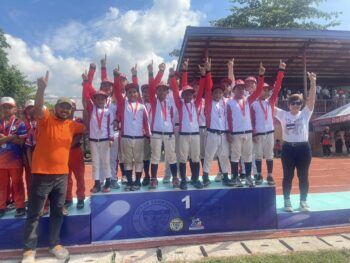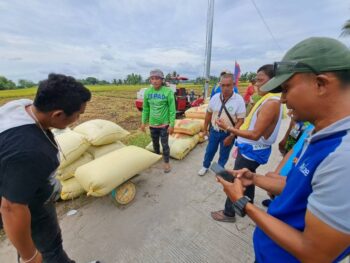
NAAWAN, Misamis Oriental (MindaNews / 06 March) – Poverty is unquestionably the key driver of human trafficking. Crime syndicates, including religious groups, use the poor to advance their interest.
Traffickers exploit women and children from rural communities, conflict- and disaster-affected areas, and impoverished urban centers in sex trafficking, forced domestic work, forced begging, and other forms of forced labor in tourist destinations and urban areas around the country.
Traffickers, serving as work placement agents, advance some amount to parents in rural areas to allow their daughters to work as domestic helps in urban centers, promising to serve as conduits in the transfer of the salaries of their kids to them. Once the agent and the daughter have left, all communication and contacts end. Their daughter is already in bondage somewhere. The worst that could happen is the sale of their child to prostitution syndicates.
Traffickers make money out of an army of beggars in the metropolis exploiting women and very young kids without options.
At one time or another, you might have been pestered and yielded to a member of Apollo Quiboloy’s army, who sell cheap ball pens or sweets inside buses and dining places; they are promised a nice place in the Kingdom of God. They would, accordingly, receive stern disciplinary action if they fail to meet their quota.
Traffickers also exploit men and women in forced labor in the agricultural, construction, mine, and fishing industries, sometimes through debt-based coercion.
The advent of communication technology has worsened human trafficking. Personal contact is minimal. Trafficked persons are forwarded to their destination online. Once there, they are forcibly made into hackers or online scammers.
Meanwhile, law enforcement information indicates that the Philippines is one of the largest known sources of online sexual exploitation of children, in which traffickers sexually exploit children, individually and in groups, in live internet broadcasts in exchange for compensation wired through a money transfer agency by individuals most often in another country, including the United States, Australia, Canada, and the United Kingdom.
The traffickers are no less than parents who bring their kids, as young as five or six years old, to internet cafes to expose their tender bodies or to perform scripted lewd acts live as demanded by a particular customer. Proceeds are apportioned between parents and café management. Parents had no qualms in making money out of their innocent children, because their kids, after all, are not, accordingly, touched or harmed by strangers. The café-based child sex trafficking ceased once smartphones became available. Now, the parents themselves operate the business online in their homes.
The government was so slow in addressing the human trafficking phenomena that has long bedeviled the country. Laws were only passed in 2022, namely, Republic Act No. 11862 (Expanded Anti-Trafficking in Persons Act) and Republic Act No. 11930 (Anti-Online Sexual Abuse or Exploitation of Children) and Anti-Child Sexual Abuse or Exploitation Materials Act.
If we were very slow in the passage of appropriate laws, we cannot expect better in their enforcement.
We are too poor in all respects to fight poverty.
(MindaViews is the opinion section of MindaNews. William R. Adan, Ph.D., is retired professor and former chancellor of Mindanao State University at Naawan, Misamis Oriental.)






